#right to roam
Text
Just read a perfectly fine fanfiction that took place in Germany but something that stood out to me was a chapter where the characters walk across a field and is approached by the farmer yelling at them to get off his land.
I’ve come across this plot point a few times and I feel like it’s worth telling writers that most of Europe has some version of Right To Roam. The laws aren’t the same in every country but generally you’re allowed to walk and rest on private property like fields and forests so long as you don’t destroy crops or leave trash, but not gardens or fenced in areas. Depending on the country you also have the right to pick mushrooms, berries, nuts and other edible things in forests but without chopping trees down or breaking branches. The owner of the land might put up a sign asking you to follow certain guidelines like no horses or keeping your dog on a leash but but there’s no real repercussions to not following the rules besides the owner eventually fencing the area off so people can’t enjoy it anymore.
I’ve personally walked around on a field while the farmer was harvesting potatoes with his big ass machine and collected the leftovers while my dog was trotting calmly besides me and he looked straight at me and didn’t care one bit because Denmark also has an old tradition of letting people collect what’s left as a form of charity (for my fellow Danes, that’s what “rev vi marken let, det er gammel ret, fuglen og den fattige skal også være mæt” means in the song Marken Er Mejet) This is just a tradition and not a law however so it depends on the farmer.
The very north of Europe like Norway and Sweden even give people the right to put up tents and camp on other people’s private land (except gardens and such). Again, the laws vary from country to country but as a rule of thumb you have more right to roam the further north you go and less the further south but if you want to write in a specific country look up the laws there.
30K notes
·
View notes
Photo
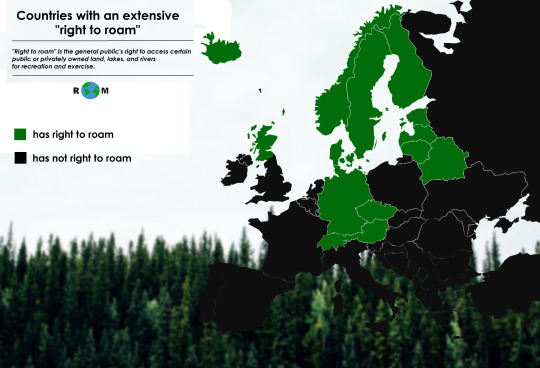
European countries with "right to roam".
by realworldmaps
609 notes
·
View notes
Text

5th February 2024 // Prince Daniel met with representatives from Swedish Outdoor Activities, Outdoor Activities Promotion, and the Crown Princess couple's joint campaign Generation Pep to discuss plans for the Day of the Right of Public Access in September. The day was co-founded by Generation Pep to promote the constitutionally protect right Swedish people have to freely roam the land.
9 notes
·
View notes
Text
i know plenty of people live in a capitalist hellscape but touching grass and enjoying nature is not an aesthetic. it's odd to commodify a basic right and turning it into cottagecore, naturecore and the likes of it.
how about leaving the house and enjoying nature instead of looking at the edited and curated images of it.
oh and how about getting angry and fighting for an equal access for all if you can't just leave the house and enjoy a park, a garden, a forest or whatever nature theoretically could be close to you.
10 notes
·
View notes
Text
I am too angry to sleep so I may as well post about this.
Alexander Darwall is a hedge fund manager who owns 4000 acres of Dartmoor. He has contested the right of the public to camp on his land. And he has won.
This has been portrayed in the media as a loss of the 'right to roam'. This is a stupid way to phrase it. We never had the right to roam. We have never had the right to wander and live on the land. The Romani people and travelling communities whose way of life is criminalised know this - but of course there isn't so much of a mention of the 'right to roam' until white middle class people think their children's dofe expedition might be threatened.
Anyway, I digress. Despite my badly-worded cynicism, this is a loss, and I am furious.
I am local. I have always lived in Devon, between the two moors. My dad knows the westcountry like the back of his hand. He and I could cross the county with our eyes closed. The tors and rivers and moorland raised me as much as he or my mum did.
And still, neither of us would claim Dartmoor as our own. Because it is not our land to claim.
But, as is the insurmountable self-centredness and inconceivably egotistical nature of the rich, Alexander Darwall visits the westcountry a couple times (as all rich people do, to recline in their seaside holiday cottage for the two weeks of the year that the ghost town they've driven all local people out of is actually populated, by other posh pricks, only to fuck off again and leave behind poverty and a decimated housing market), and decides that the local people can't be trusted with such beautiful land, and thinks he deserves to own it. And manage it.
Because of course the local peasants couldn't know anything about conservation. We don't have a connection to this land, oh no, nothing as strong as the connection between a rich man and the estate he can shoot pheasants on.
It makes my blood boil. The evil of it, the condescension. People like Alexander Darwell know nothing about the moor. It's not just about walking on it a few times: when you're local, you know it. You've seen it in all of its forms, all months and all seasons, you've seen it at its most beautiful and most ugly, you've endured its cold to stare at the stars, you know its history and you've followed its standing stones, walked silently and respectfully past its tombs and barrows, you've replanted trees and held the earth in your hands, you've counted the deer bolving, you've built the structures that will rewet the moorland and return its life, you've sampled the soil from the bottom of trenches and carefully replaced every layer to disturb it as little as possible, and you've sweated and ached to see all of these things and give all of this to the moor.
And still, the land is not yours to own! You can do all of this - I have done all of this - and still the land is not yours, and it is not mine.
And you can do none of this, and you should still have a right to access it. That is the point of our conservation efforts.
Conservation is the old men and women who I've planted trees with, the archaeologists I've uncovered my county's history with, my dad and his colleagues working on projects to protect the moor and the climate that is harmed by the loss of carbon-rich peat.
Conservation is not a hedge fund manager privatising the land for profit. It is not the mindless, evil promise of capital, that compels Alexander Darwall to build fences around Dartmoor and lock up his land. His land. I feel sick typing it.
Because ultimately, this was done for profit. There is contempt in it - Darwall has no respect for local people who aren't far-right politicians he can buy - but the main motivation is money. The national park will now give him money, money which should be spent on conservation projects but is now going into an evil millionaire's pocket, and the rich cunts who can't wait to butcher the pheasants and deer that should be existing wild, in naturally-sized populations, will give him money to shoot and hunt on his land and leave the carcasses there to rot.
I am angry. I am so, so angry.
I have every intent to camp on Darwall's land. I will break his locks and tear down his fences, and every local who can should do the same.
Dartmoor is no one's. But if it must belong to someone, it should belong to us, and not to him.
#alexander darwall#right to roam#dartmoor#uk news#uk politics#devon#westcountry#exmoor#somerset#dorset#cornwall#moorland#conservation#wild camping#protest
51 notes
·
View notes
Text
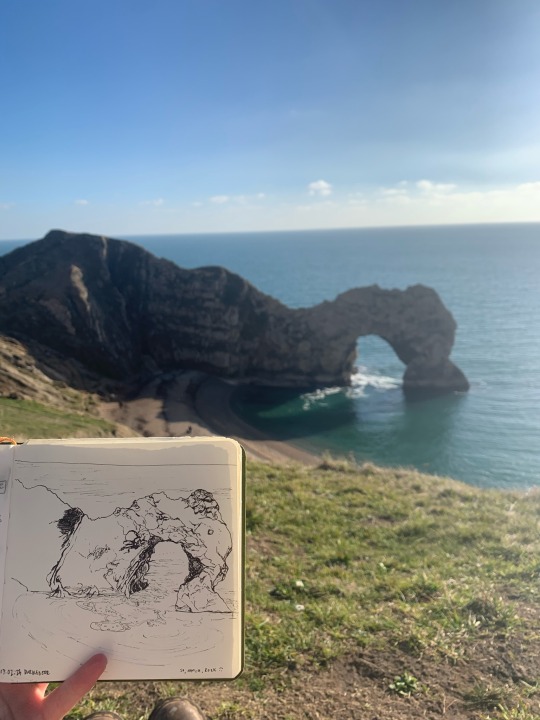
quick, not very accurate documentations of my travels. i am proud to announce i gave up 20 minutes in.
20 notes
·
View notes
Text
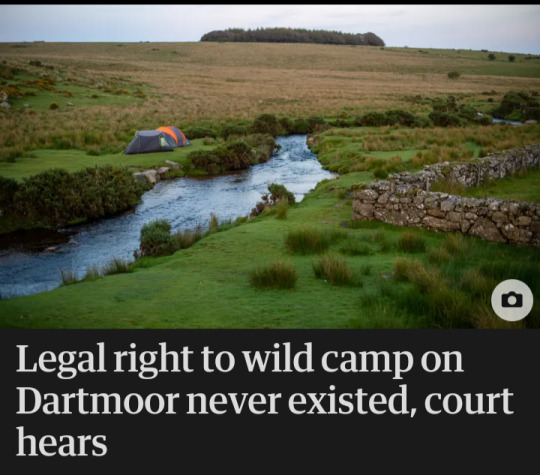
Absolute disgrace. The landowning classes won't be happy till they've legislated the rest of us into all living in one car park in the centre of London. So entitled that they don't even know how to share something as fucking massive as Dartmoor.
21 notes
·
View notes
Text
The Oxford Real Farming Conference 2024 (ORFC24)
I have a sort of love-hate relationship with conferences. On the one hand, I always get swept away by the initial rush of excitement: a gathering of people, coming to exchange knowledge around a field we are all passionate about. On the other hand, for someone like me, the reality of conferences tends to be strange, isolating experiences dominated by academic, white, middle-class, cis people who speak a different language, with different values, and operate in a different world to me. Though I enter them full of excitement and curiosity, I usually leave feeling somewhat untethered, overwhelmed by theory and findings but bereft of community and thirsting for actionable, solutions-based approaches. I was delighted, therefore, when ORFC24 opened with a plenary of 10 speakers, all of them landworkers, from around the world, all of whom were extolling - in their own words and ways - action; solidarity; active hope; and calls for food, land, and sea sovereignty. It was clear from the outset this wasn’t going to be the ‘usual’ kind of conference (an abstract exploration of ideas and record of projects past) but a gathering of an international, multilingual, grassroots movement, rooted in an ethics of care and equality; working directly with the land on fairer systems of food and farming.
During the opening Plenary, Charlotte Dufour from Conscious Food Systems Alliance (CoFSA) invited us all - speakers, volunteers, and delegates, in Oxford and online - to take a moment to connect with the land, with one another, and to set an intention for the conference mindfully. In a busy programme of 45 sessions, featuring over 150 speakers and a busy stream of projects, opportunities, and conversations inundating social media, this invitation felt like a precious opportunity to gather focus, mitigate overwhelm, and ground ourselves. Sat at my kitchen table, some 330 miles away from Oxford, I set my intention: to seek out and learn from those at the frontlines of the struggle for Land, Food, and Environmental Justice. It didn’t take long for my intentions to be realised…
In the Thursday lunchtime session Colonised and Coloniser Transforming Relationships through Food and Land Stories Loa Niumeitolu, a displaced Indigenous Tongan, now living and working on Lisjan Ohlone Territory, California and Jessica Milgroom, a descendant of settler families, who grew up on Ojibwe reservation land in Northern Minnesota, held a conversation that aimed to “...break down hierarchies…to ask how we relate… how can we walk forwards together healing the wound of colonisation through food...” (JM). The conversation was one of honouring, compassion and bearing witness. As a white person living in the UK, for me it was also one of humility and unlearning: of coming to understand how our Western food systems are designed, founded and run on the violent displacement of indigenous people; the erasure of indigenous food systems; the severing of indigenous identity and everybody’s connections to the land. In some of her closing remarks Loa Niumeitolu invited the attendees to think differently about our identities and interconnectedness: “The sacred site IS the land… the land is an extension of our bodies… and we are all from indigenous people… we all have great great great grandparents who cared for, and stewarded, and loved the lands that we’re on…”. The session left me thinking about how it is people like myself can find our way back to our indigenous selves, to our ecological identities, and to the essential interbeing with the lands we live on. This conversation, conducted across the divide of coloniser and colonised, offered hope for how stories, conversations, and gatherings may start to unravel the systems of oppression and exploitation that industrial agriculture (aka the food arm of imperialist white supremacist capitalist patriarchy) extends around the world.
On the Friday morning session Building a Global Peasants Movement: 10 Years of Land Workers’ Alliance (LWA) and 30 Years of La Via Campesina (LVC) we heard from Jyoti Fernandes, Morgan Ody, Chukki Nanjundaswamy, and Paula Gioia themselves all land workers, farmers, peasants and indigenous peoples from around the world working both at the grassroots and international levels to oppose the neoliberal programme of WTO whilst also building international food sovereignty and land justice movements. It was a moving and eye-opening session led by women who - though it was never named - are all doing the vital repair work of rematriation.
Chukki Nanjundaswamy (Executive Chairperson of the Karnataka State Farmers Movement and co-coordinator of the All India Coordination Committee of Farmers Movements) traced the history of La Via Campesina (aka “Our Way” in Spanish) from its origins to the movement today which branches almost 100 countries and hundreds of local and national organizations “...fighting all kinds of imperialist and capitalist forces… for the right to food sovereignty”. She described how LVC is organised from the bottom up, constantly learning and evolving from the experiences of its members and other allies including the decision to ensure men and women were represented equally and at all levels of the movement. “LVC is not just about denouncing what we don’t want but also about building hope…across all sectors of society”.
Jyoti Fernandes (Campaigns and Policy Coordinator for the Landworkers’ Alliance) described “the family” of LWA, itself a member of LVC, and her reasons for co-founding LWA in the context of the UK where inequality and access to land have been yolked since the time of the enclosures. She explored the organic origins of the movement from pro-nature, anti-GM protests; to creative expressions of hope, solidarity and resistance; a shared belief in rights for natural home building, self and community sufficiency, and a collective realisation that “...there was this huge network of unorganised people… the neo peasantry returning to the land… and smallholder farmers… all facing evictions … and struggling to survive in the face of the neo-liberal paradigm the UK government was pushing onto farming…”. She described, with infectious joy, how LWA now regularly consult with DEFRA who recognise that LWA’s impetus of “Matching food production with biodiversity and looking after the climate…” is in everybody’s interests.
Paula Gioia (Facilitator of the Smallholder Farmers Constituency in the Civil Society and Indigenous Peoples Mechanism - CSIPM) talked about the intersectional work members of LVC had to undertake to develop a movement of radical change “… to fight against Capitalism and to fight against Patriarchy…this begins with self-reflection: how we reproduce Patriarchy in our daily lives… and this self-reflection begins with space… ” They described the women’s strike at of 1996 in Tlaxcala, Mexico during the 2nd International Conference of LVC in, which challenged the dominance of men, patriarchal ideas and attitudes in the movement whilst demanding; acknowledgement of the role women play in agriculture, farming, and society; 50 - 50 representation of men and women at all levels of LVC; a campaign highlighting and fighting violence against women and; the creation of spaces - now women’s assemblies - necessary for women’s ideas and voices to be supported by, and come forth through the movement.
Morgan Ody (General Coordinator of La Via Campesina, member of Confédération Paysanne and of the coordinating committee of ECVC) wearing the Palestinian keffiyeh around her shoulders spoke with clarity and passion about LVC's global accomplishments:
“… it is still illegal to crop GM crops in Europe, we fought for that… In Columbia, LVC is one of the main guarantors of the Peace Agreement… We have been the first to call for food sovereignty and now everybody is calling for food sovereignty…We have been pioneers of peasant feminism and now peasant feminism is growing everywhere… We have been able to negotiate the UN Declaration on the Rights of Peasants and other people working in rural areas (UNDROP)...” But Morgan’s talk didn’t end in the past, she spoke about how, in the face of multiple overlapping global crises, LVC offers alternative ways of being, of hope, of solidarity now and going forward “...Peasants…and all who are taking care of Mother Earth are the future...”.
She expressed grief and horror at the genocide happening in Palestine and the complicity of governments: “This is not acceptable and as La Via Campesina, we stand against this barbary, we stand for human values, we stand for human dignities, of whoever, of women, of non-binary people, of people whatever their religion or the colour of their skin. We are equal and we are equal in dignity...” This was a powerful reminder that land and environmental justice are inextricably intertwined with social justice and that we are all responsible for decolonising ourselves, for calling out and resisting imperial violence and oppression, wherever it happens in the world. But this session also spoke to how we are all responsible, not just for fighting the old, but also for cultivating the new: through solidarity, active hope, compassion, and creativity. As Morgan said in her closing comments “We are all responsible...for building a culture based on human rights and equality, intentionality, solidarity, and cooperation.”
The session was bookended with calls of “Viva La Via Campesina! Viva!”
In reflecting on these sessions of ORFC24, I started to think that healing is not the same as forgetting, but equally, it is not about flagellating ourselves or one another with past and current traumas - healing comes when we slow down, take time to sit with the pain and discomfort, to listen, learn, notice, and accept. This applies to ourselves, to those we have harmed, and to everyone (humans, land and more than humans alike). What both these sessions taught me is that when we share space and stories, when we listen deeply to one another and bear witness with compassion and empathy, we slowly start to arrive at a new understanding and to do the slow, gentle work of cultivating regenerative cultures based on reciprocity, healing and solidarity.
What I didn’t expect to happen as a consequence of volunteering at ORFC24 was that I would go away from the conference knowing more about myself…As someone who grew up in the English countryside but with no rights to access (we were a poor/working-class family living on a former miner’s terrace, surrounded by Grouse Moors and a large, tenanted estate) my relationship with the land was schismatic: though I felt a deep connection with the fells, moors, and rivers, I was also - according to the farmers, landowners and agents - an outsider. Worse, I was an illegal trespasser. I was surrounded by land which felt like home, like an extension of myself, only greater, deeper, older, more complex, more loving than I could comprehend. And yet, if caught swimming in the tarn, making dens on the fells, walking on the moors, or trudging through the heather, I would - at the very least - be shouted at and oftentimes, be warned away by the crack of shotgun fire. What ORFC24 and the incredible speakers made me realise is something that has taken me 30 years of unlearning to only start to understand: the necessary return to the land, the rediscovery of land-based life, something that I always yearned for but could never allow myself to imagine is not just a fantasy, it is a right. Listening to speakers on colonized lands, to those displaced by colonization and capitalism, to the LWA and LVC, I started to understand the violent inequality at the heart of our UK land and food systems. These speakers helped me see that I have the right to be on and with the land. Because there is no separation between us. I have always known, since I was a child, that myself and the land are one and the same, it was just educated out of me by our systems of inequality, land ownership and education. What the speakers at ORFC have helped me see is that my healing, and the healing of the land, are not separate but wholly, inextricably intertwined.
So now, to begin again, with gratitude and humility… The work of reconnecting and healing all our wounds…
Viva La Via Campesina!
Viva!
Iris Aspinall Priest, Tyne Valley
10.01.23
Word Count: 1985
#equality#solidarity#food sovereignty#LVC#LWA#land rights#indigenous rights#healing#animism#Qi#Nature#Resistance#Dignity#Human rights#traumarecovery#trauma#colonialism#capitalism#right to roam#irispriest
2 notes
·
View notes
Text
Walk the walk: the app mapping 140,000 miles of public right of way
3 notes
·
View notes
Text
Swimmers poised for biggest mass trespass so far at Kinder reservoir
“Up to 1,000 swimmers are expected to head to Kinder reservoir in Derbyshire on Sunday in the biggest trespass of the water to date. The turnout will mark the anniversary of a mass trespass that helped establish the principle of the right to roam in the UK.
“The swim trespass of Kinder reservoir, situated below Kinder Scout where the 1932 protest took place, has become an annual event and is growing rapidly with the boom in wild swimming. The event is now in its third year, and swimmers of all backgrounds are invited to the reservoir, owned by the water company United Utilities, to exercise ‘the uncontested right to swim in open water’.
“The mass trespass of Kinder Scout on 24 April 1932 involved an estimated 400 people and led to six arrests. It is widely considered to have laid the foundations for the UK’s first national park, the Peak District, and helped pave the way for the establishment of the Pennine Way and other long-distance footpaths.
“Last year about 400 people took to Kinder reservoir to mark the anniversary, and greater awareness, along with the continued growth in wild swimming, means numbers are expected to be substantially higher this year.”
#kinder reservoir#mass trespass#trespass#right to roam#direct action#mass resistance#resistance#private land#land reform#land ownership#land#british politics#uk#politics
3 notes
·
View notes
Text
Can’t have a conversation about anything without a Brit saying something moronic.
5 notes
·
View notes
Text
The Lords Just Don’t Understand October 9, 2022

Songs about leftist and collectivist movements, mostly from the British Isles, 14th-21st centuries. Yknow the usual last minute Sunday night fill-in deal.
stream on Mixcloud
Zounds - This Land
DJ speaks over Mystras - The Cutty Wren
George Hardy - The Land Song
Ewan MacColl and Peggy Seeger - Hey Ho! Cook and Rowe!
Dick Gaughan - Both Sides The Tweed
The Bitter Withy - The Bitter Withy
Hamish Henderson - Freedom Come All Ye
Ryan's Fancy - The Manchester Rambler
Sam Lee - The Moss House
The Almanac Singers - Casey Jones (The Union Scab)
Cornelius Cardew - We Only Want the Earth
Blyth Power - Hurling Time
Glasgow Socialist Singers - England Arise
Maddy Prior & The Girls - Cropper Lads
Carl Sandburg - The Foggy, Foggy Dew
Crass - G's Song (Commoners Choir Remix)
Johnny Campbell - Hard Times of Old England
Robin Grey, Dolly May and Nick Hart - John Ball
Shirley Collins - The Sweet Primroses
Chumbawamba - You Can (Mass Trespass, 1932)
Lieberman, Duncan, Smith & Sanders - Die Gedanken Sin Frei
Alistair Hulett - Destitution Road
Planxty - Only Our Rivers
Robin Dransfield - The Cutty Wren
Barnstormer 1649 - Wellingborough & Wigan
Leon Rosselson - The Digger's Song (feat. Roy Bailey)
Billy Bragg - The World Turned Upside Down
#radio#the kids just don't understand#folk music#trad folk#diggers#levellers#peasants revolt#right to roam#unions#folk punk#anarcho punk#irish music#rebel songs#music#playlist#mixtape#wprb
7 notes
·
View notes
Text
'Private property: keep out.’ ‘No footpath.’ ‘Fishing: Permit Holders Only.’ ‘Trespassers will be prosecuted.’
Want a breath of fresh country air? Feel like a bracing river dip? Well, choose carefully. Stray off the designated path or bathe in the wrong spot, and you could be had for trespassing.
“More often than not, you’ll find your right of way will be fenced off on either side. Basically, all we’re allowed to do is walk in straight lines behind barbed wire.”
So argues Nick Hayes, author, illustrator, carver of wooden stick, and a leading voice in an increasingly vocal movement to reclaim our right to roam.
On 24 September, he and others from the eponymously named Right to Roam campaign (of which Hayes is a co-founder) will take part in a mass trespass to save Worth Forest, the largest forest in Sussex.
The action follows a recent letter to the prime minister, in which Right to Roam set out a powerful case against England’s ‘unfair’ and ‘untenable’ land access laws. Core to that case are the benefits that access to nature brings, both for ourselves as individuals as well as for the natural environment itself.
Read more...
6 notes
·
View notes
Photo
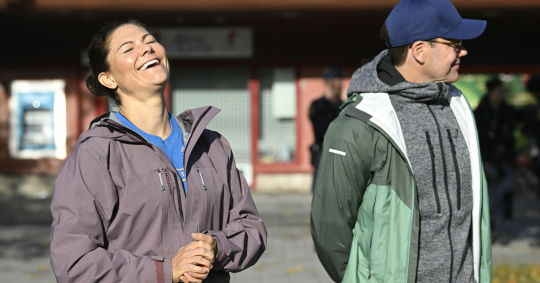
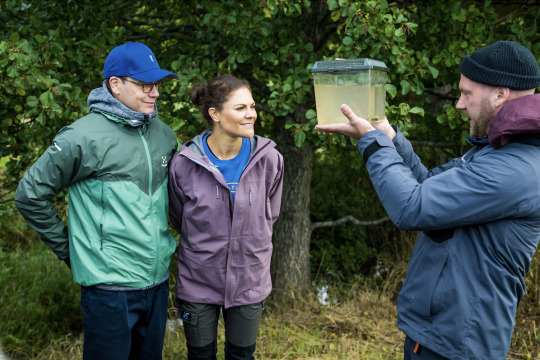
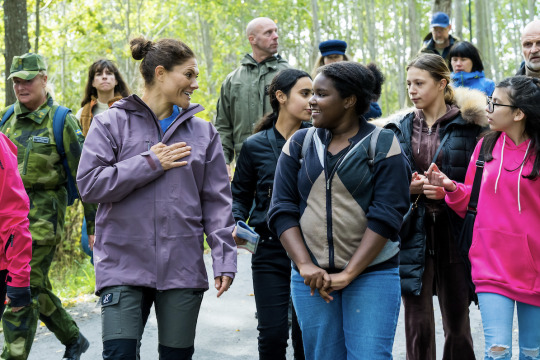




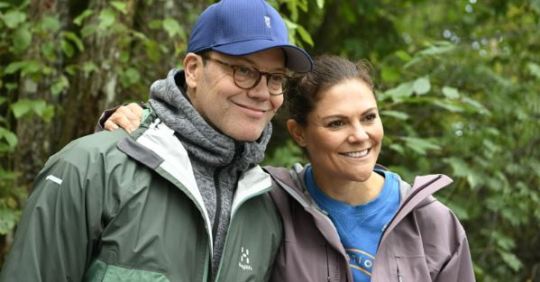
20th September 2022 // Crown Princess Victoria and Prince Daniel participated in Allemansrättens Day, a new day honouring freedom to roam laws; this right is considered so important that access to nature is protected by the Swedish constitution. To promote the day and encourage outdoor activities, the Crown Princess couple went on a nature walk with children and young people and learned about local efforts to protect the environment.
#crown princess victoria#prince daniel#swedish royal family#2022#september 2022#right to roam#my upload
29 notes
·
View notes
Text
Labour pledge goes walkabout as Reed drops right-to-roam
Stonewalled: the right-to-roam policy in Scotland was introduced by a Labour Government, and provides the public with more rights than exist in England and Wales
After the latest U-turn and Orwellian excuses, ANDREW FISHER suggests that when out canvassing, Labour activists need to encourage the public to vote for them quickly, before the policies change
Country sport: Labour’s Steve Reed two…
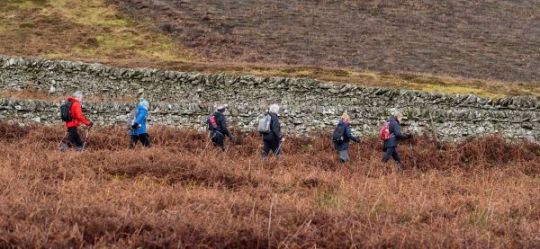
View On WordPress
0 notes
